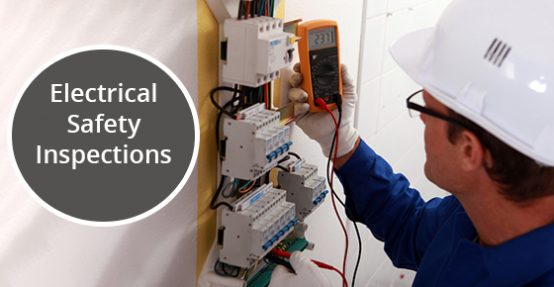
Electricity is one of the biggest conveniences of the modern times. And when your lights, electrical appliances, and other gadgets are all working well, it is easy to assume that the underlying electrical work is in perfect condition. Even when something goes wrong, there is always a quick and easy fix, like replacing a bulb or a broken component in an appliance.
Rather than waiting until your circuit breaker trips or an electrical breakdown occurs, it is recommended that you schedule regular electrical inspections for your home every three months to ensure that everything is functioning well and to reduce the risk of costly emergency repairs.
What Does An Electrical Home Inspection Entail?
Electrical home inspections involve the meticulous assessment of your entire electrical system to ensure that all electrical systems, cables, and components – including your home’s wiring and electrical appliances – satisfy the legal safety standards.
All licensed electricians operate under a National Code when assessing your residence, and are required to provide you with a detailed and prioritised list of areas that need immediate attention, as well as recommendations for improvements and upgrades.
Electrical home inspections are particularly important when:
Scheduling regular electrical home inspections is important to ensure the safety of your residence and ease your mind by:
In addition to performing a home electrical safety check before moving into your new home, scheduling regular visits by your residential electrician every few months can help to identify and address problems in your home’s electrical system long before they develop into unexpected failures that require more expensive emergency electrical service.
Performing Electrical Inspections
For an electrical inspection to be truly helpful, it should only be performed by a licensed electrician with the skills and competency to perform electrical safety checks. You need a residential electrician who has been trained on common issues to look for in residential properties, and how to correct any problems they find.
Most professional electrical installation companies perform inspections after installing new electrical wiring and devices. For your peace of mind, always make sure that your licensed electrical contractor provides you with a safety certificate after completing any electrical work in your home
A typical electrical home inspection covers:
After the inspection, you should be given a detailed and prioritised report of electrical issues in your residence that need immediate intervention.
Finding The Right Electrical Contractor
Electrical inspections are vital for the safety of your home, office, or building. Worn, naked wires and messy wiring create all kinds of hazardous situations that range from deadly electrocutions to destructive fires. Keep in mind that poorly maintained wiring and electrical components can lead to life-threatening problems.
When choosing a residential electrician or installation company to perform an inspection or any electrical work in your home, you should ensure that the contractor has the relevant licenses.
Ask for references of other similar jobs they have performed in your area, and find out whether their clients had any issues or complaints with the company or contractor. Most businesses today have a website and social media profile, so that’s a good place to start your assessments.
Hiring a reputable, licensed, and certified residential electrician is key to keeping your home safe and up to date. Scheduling regular inspections ensures that all the wires and appliances are in good working order, which reduces the risk of accidents.
Lastly, it is never a good idea to try and handle serious electrical work yourself, as the problem often requires specialised knowledge of how the component or circuit works. Also be careful with the person you hire to handle the work, as you will be literally placing your life in their hands.
© 2024 Licensed Electrical Installation & Service – Hi-Liteelectricinc.ca
All Rights Reserved.
Leave A Comment